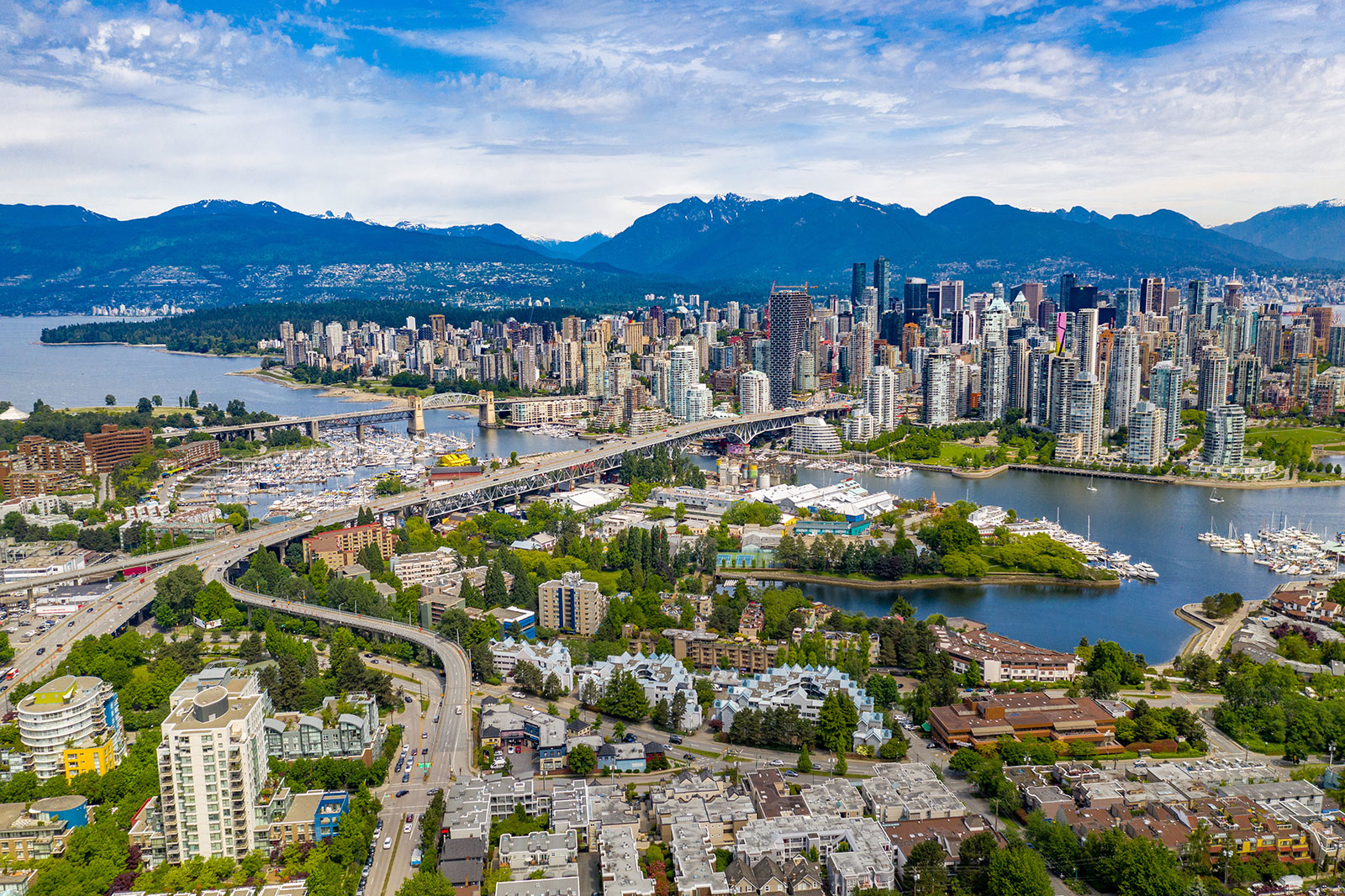More and more tiny house listings are popping up across Canada, and when it comes to tiny homes, British Columbia is no exception.
But living in your dream tiny home is not as simple as contacting a tiny home builder and getting started. Certain legalities apply to small-scale homeowners residing in Canada, and these rules and regulations differ between provinces and municipalities.

So, if you have big dreams of living in one of the many fully furnished micro homes available on the market today, read on for more info more about living in a tiny home in British Columbia.
Are Tiny Homes Legal In British Columbia?
The answer to this is complicated. Tiny houses are legal in some regions of British Columbia; however, the building codes in the province do not specifically address tiny homes and use metrics to describe minimum requirements for a large home.
The legality of these small dwellings depends on the local municipal bylaws, as well as whether the structure is permanent or not. Districts in British Columbia have specific requirements for permanently habitable buildings, such as the minimum square footage, and these do not always apply to tiny homes.
This does not mean that no areas in BC allow tiny homes. Sunshine Valley is particularly popular for those looking to live in a modular home, as these houses are permitted on certain plots of land, making it the perfect spot for a simple life.
The minimum square footage allowance has caused many who dream of living in a tiny home to turn towards trailers – these are considered non-permanent, and the building codes and regulations are loosened.
What Are The Requirements?
At the Affordable Housing Conference held in 2019, the definition of a tiny house was as follows: “A ground-oriented permanent dwelling that is detached, movable and non-motorized, small in size (less than 500 square feet) and uses a compact design.”
Tiny houses typically have a floor space between 200 and 300 square feet and are only 8.5 feet wide. If they exceed these size restrictions, they will require a permit for towing.
Most tiny homes are custom designed with quality craftsmanship and high-quality materials. With the lack of building codes specifically aimed at tiny homes, there are no set requirements for these dwellings.
The British Columbia Building Code does not contain regulations prohibiting tiny homes. All homes must comply with the rules set out in the code for safety, fire, health, accessibility, and structural soundness.
Mobile tiny homes, or homes manufactured off-site, are regulated by the Manufactured Home Regulation and must comply with standards in CAN/CSA Z240-MH.
If you are interested in building a tiny home, you should contact your local municipality to learn more about land uses, zoning, and building limitations.
To summarize, all tiny homes must meet the same building codes as traditional homes. This can be challenging, as these small-scale dwellings have bedroom loft spaces, ladders instead of stairs, narrow doorways, and no secondary exits.
Where Can I Legally Park Or Place My Tiny Home?
Provincial building codes in BC do not yet have a formal classification for tiny homes on wheels, but there are a few spaces you can park your tiny house legally in BC:
- Big Calm Tiny Homesteads, Kootenays.
- Tiny House Community BC, Scotch Creek.
- Wheatgrass Tiny House Community, Okanagan.
- West Lake Camping and RV Park, Prince George.
- Bluegrass Meadows Micro Village, Terrace.
- Ocean Winds RV Park, Saanich.
How Often Do I Need To Move My Tiny Home?
A tiny house on wheels is not considered a permanent residence. These homes are considered recreational vehicles (RVs) and are not allowed to remain parked in one place for a whole year.
Do I Need A Permit To Build Or Live In A Tiny House?
The Local Government Act of British Columbia does not restrict tiny dwellings, but regulations do not specifically recognize tiny houses, meaning these small structures must comply with regular housing codes.
Small-scale homes have features that make it almost impossible to comply with the local government’s building code, such as narrow doorways, loft bedrooms with low ceilings, and no secondary exits.
On the positive side, although BC bylaws do not recognize tiny homes, they are also not prohibited. That means your house can be any size, as long as it meets the health, safety, fire, water efficiency, energy management, and accessibility standards.
The British Columbia Tiny House Collective is pushing towards recognizing tiny houses in BC and is advocating for separate tiny house bylaws.
While this is not yet in place, homeowners or builders of tiny homes will have to meet the permitting requirements of traditional homes.
FAQs
How big can a tiny house be in Canada?
How much does it cost to build a tiny home in Canada?
Am I allowed to have a tiny home in Victoria, BC?
Why are micro homes so popular in Canada?
What is the difference between a tiny house and an RV?
Sources
https://www.reddit.com/r/britishcolumbia/comments/e3qi6c/are_tiny_houses_legal_in_british_columbia/
https://www.movingwaldo.com/ask-waldo/are-tiny-houses-legal-in-british-columbia/
https://thetinylife.com/canada-tiny-house-builders-guide/
https://thediscourse.ca/vancouver-island/tiny-house-living
https://www.rewildhomes.com/tiny-home-villages-and-campgrounds
https://www.tinyhomealliance.ca/faq/
https://tinyhouselistingscanada.com/frequently-asked-questions/
